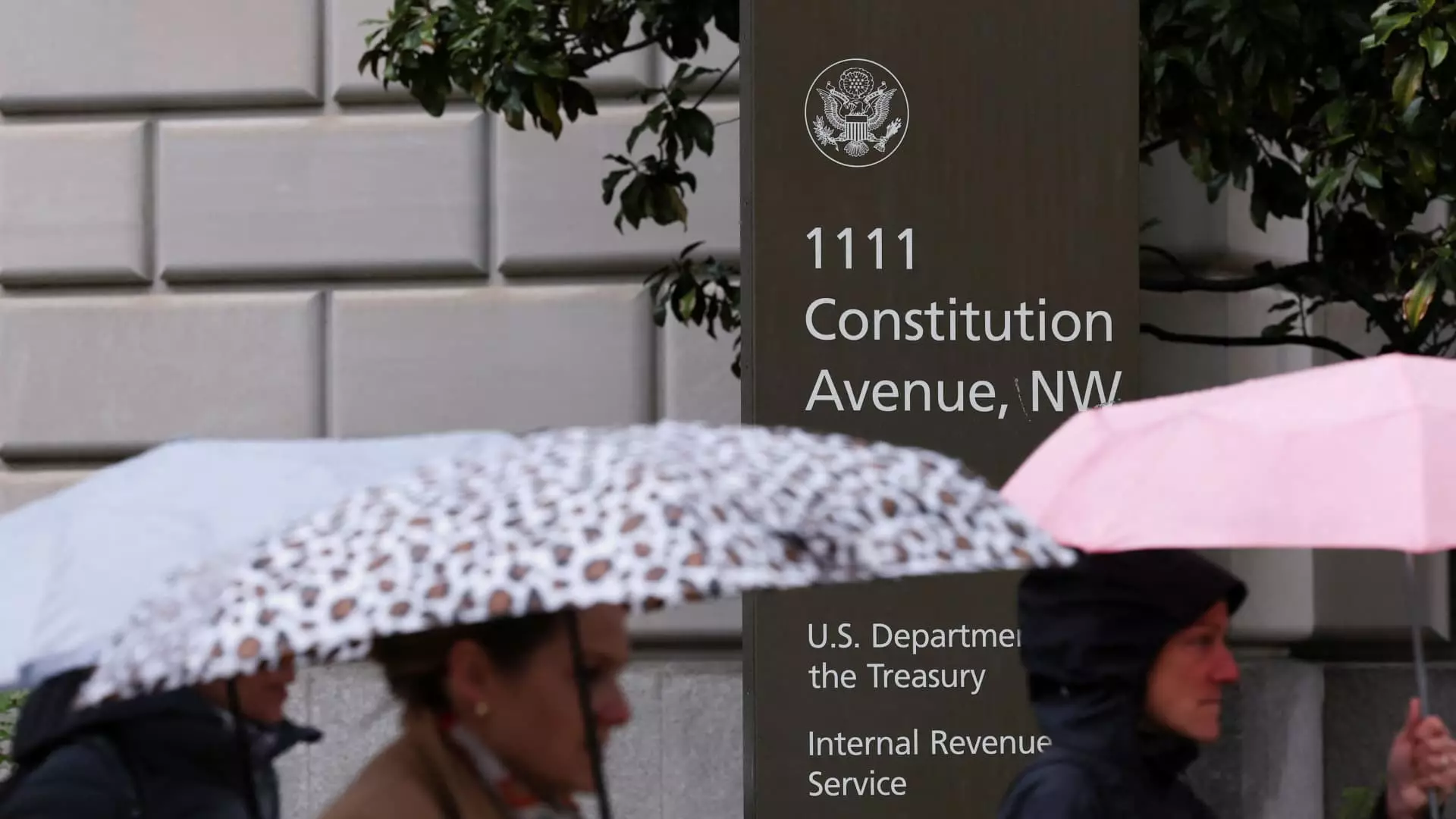In 2024, the prospect of revitalizing the IRS with a projected budget increase of $80 billion sparked hope for enhanced tax compliance among high-net-worth individuals. The agency sought to recruit a new generation of young, technologically adept accountants and engineers like Wesley Stanovsek, whose expertise in complex financial instruments promised to untangle the labyrinth of high-income tax returns. However, this dream quickly unraveled when Stanovsek, along with other new hires, faced termination not long after joining. His firing came just as he was handling multiple high-profile cases that could have translated into substantial tax revenue—a situation unfortunately mirrored across the agency.
The gutting of IRS talent represents a significant regression, one that exacerbates tax compliance disparities between the wealthy elite and average citizens. In an age where the rich employ an arsenal of financial strategies to minimize their tax burdens, the diminishing IRS workforce signals a retreat from the agency’s previous vigor in auditing the wealthy. With newly empowered high earners capitalizing on this reduced oversight, the IRS might just be veering into what some experts categorize as a dystopian reality—one where revenue losses spiral out of control.
The Regulatory Vacuum
The rapid turnover within the IRS doesn’t just weaken its physical workforce; it also erodes the agency’s institutional knowledge and capability to enforce tax law effectively. As Kathleen Pakenham, a partner at Vinson & Elkins, aptly described it, the IRS has become akin to a “zombie”—lacking direction and spine. This state of disarray has led to “dark” audits, where cases simply go unresolved, leading many affluent taxpayers to question the necessity of filing altogether. The prevailing belief among some is that they may bypass the complexities of taxation altogether, a dangerous fallacy that could lead to severe ramifications down the road.
Without adequate staff, the statutory limitations that govern tax assessments will soon elapse, closing doors on potential revenue that would support public services crucial for economic growth. Tax attorneys caution that this environment encourages aggressive tax-planning strategies that could fan the flames of a new tax evasion crisis, positioning the wealthy to exploit loopholes that, in years past, would have been tightly regulated.
Unanswered Questions: The Taxpayer Conundrum
Robert Romashko, another seasoned tax attorney, raised alarms about the troubling reality that his clients face—protracted audits that leave them in limbo. With some cases failing to progress for months or even years due to personnel shortages, many wealthy taxpayers face a high-stakes game of financial roulette. For example, a client trying to sell a business hampered by a legacy tax lien is stymied by the IRS’s inability to process appeals or address outstanding issues—a disenfranchisement palpable in its frustration.
Moreover, high-net-worth individuals possessing overseas investments and accounts risk falling victim to automated systems that lack the human touch necessary to resolve complications. If the IRS cannot effectively manage its delayed filings and compliance issues, they impede legitimate sales or financial transactions—a dire outcome for taxpayers who expect prompt service.
The AI Fallacy: A Double-Edged Sword
While Treasury Secretary Scott Bessent promises that advancements in artificial intelligence will usher in greater efficiency and an era of heightened tax compliance, the reality may be far more nuanced. Though AI-powered systems can streamline initial audits, they lack human intuition and discernment—qualities that seasoned auditors employ to navigate complex fiscal landscapes. It’s akin to the difference between a detailed scouting report and a live game strategist; one can identify potential risks, while the other masters the art of real-time decision-making.
Pakenham warns that while AI may be adept at identifying patterns or flags in tax returns, it cannot replicate the nuanced judgment that comes from years of professional experience. This discrepancy risks mischaracterizing legitimate tax behavior as fraudulent, deepening the chasm between the IRS and a segment of the taxpayer population that feels unjustly scrutinized.
The Stakes at Play: Revenue Losses and Future Implications
Preventative foresight indicates that if staffing cuts at the IRS persist, the country stands to lose an astounding $160 billion in tax revenue over the next decade, with some analysts suggesting the number could skyrocket to over $500 billion for 2024 alone—a statistic that speaks volumes about the grave implications of these budgetary decisions. The fallout directly affects not just affluent individuals but the public at large, as dwindling tax revenues mean looming cuts to essential services such as education, healthcare, and infrastructure.
In a political climate rife with economic inequality, these decisions cannot be viewed through an impartial lens. The rolling back of IRS enforcement programs benefits the wealthiest Americans while undermining the foundational structure that ought to hold them accountable. The very fabric of democracy rests on equitable taxation—one in which all citizens contribute their fair share. As the IRS becomes enmeshed in chaos, the repercussions of inaction will be felt across the nation for years to come.

